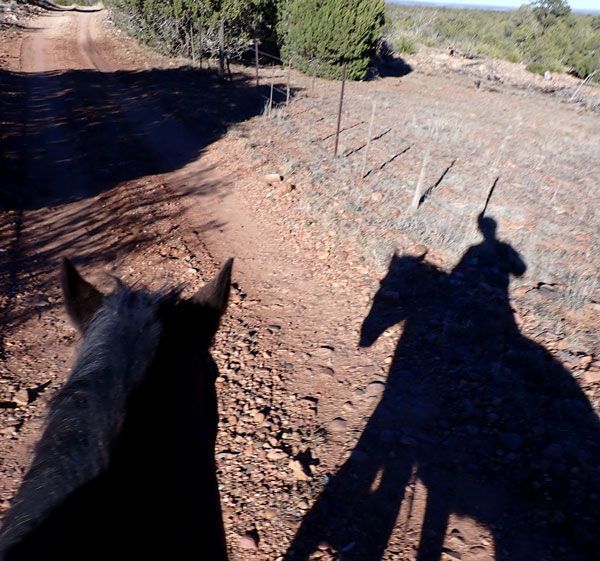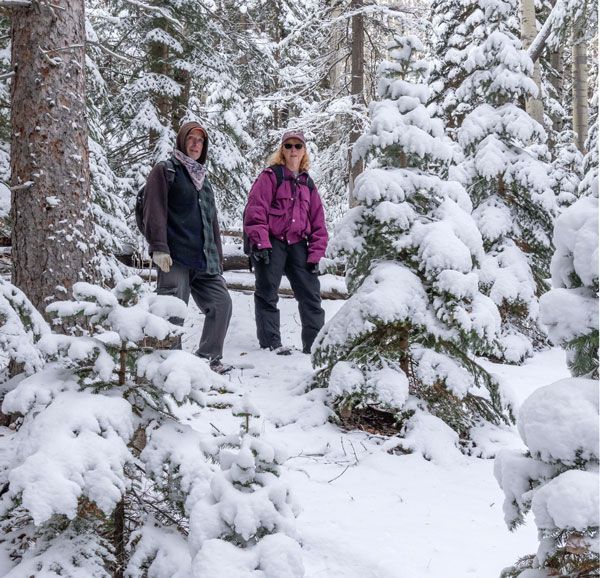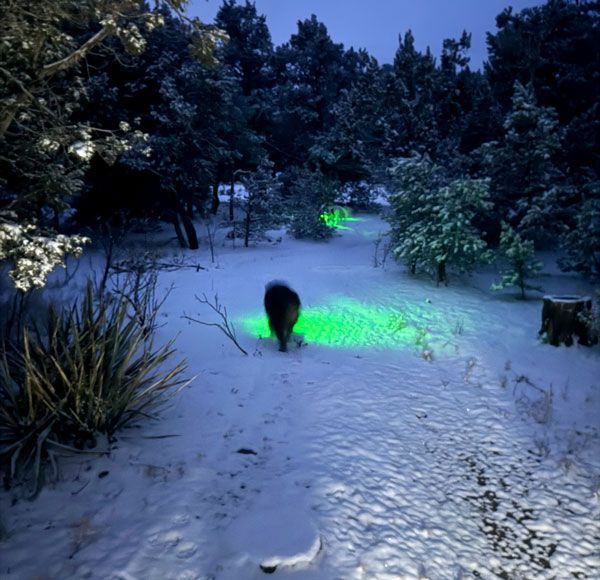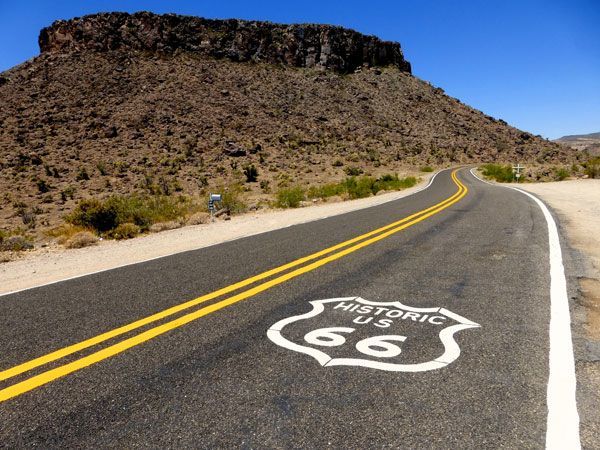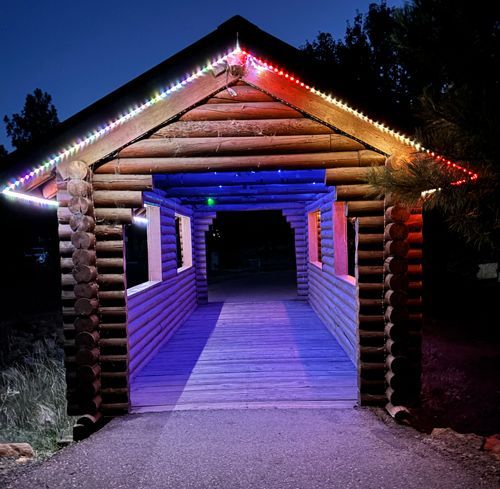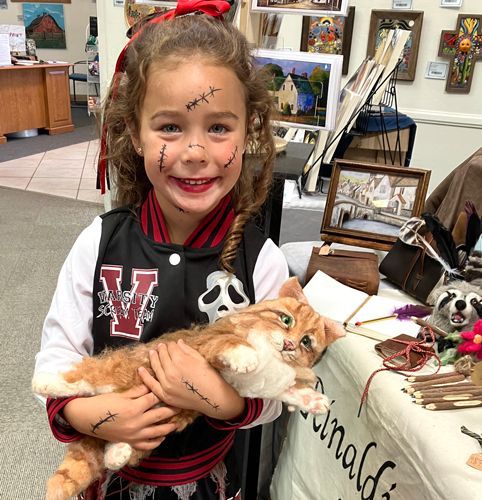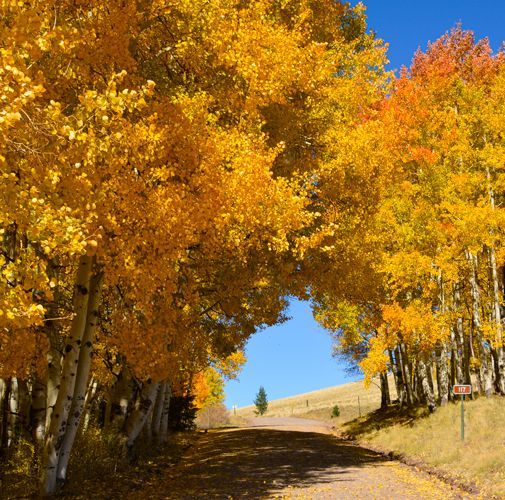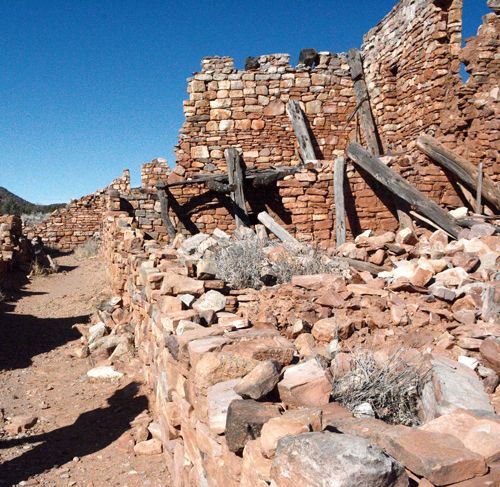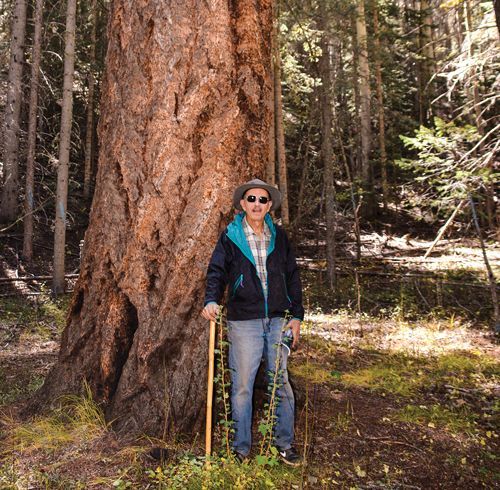All of these volunteers, as well as the board of directors and members of the Nature Center — along with generous donations from the Elizabeth Parkman Foundation — are working hard to prepare a facility of healing — and wildlife never had it so good!
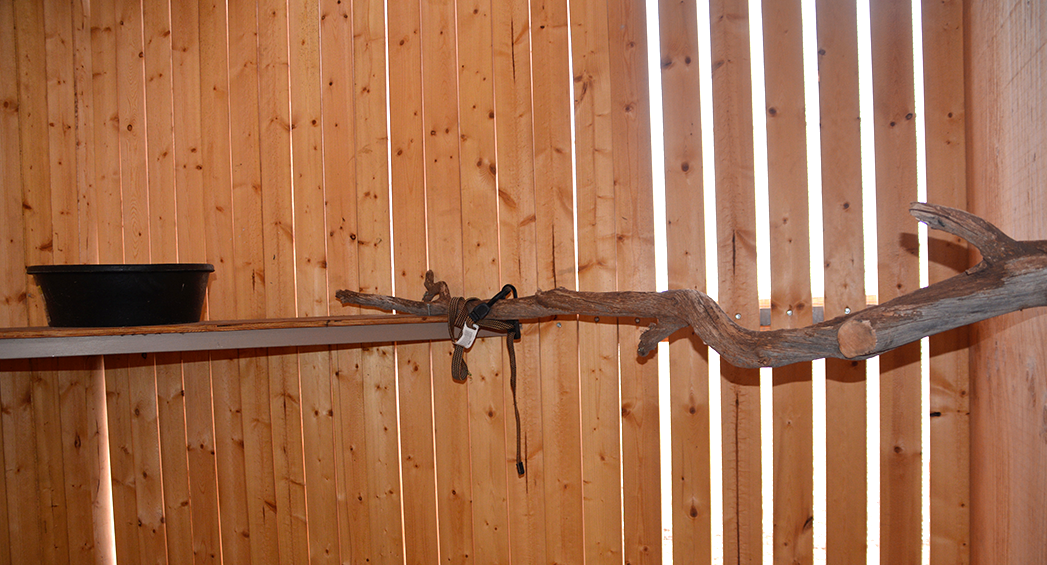
There is a fine line between life and death of an injured wild animal. Left to fend for themselves in nature, they more than likely will become an item on the food chain — dinner for other animals. If they do survive, they will lead a life of difficulty depending on the injury, incapable of a normal life. Needless to say, they usually don’t stand a chance of survival in a world of nature’s fittest. Jeff Wolf, veterinarian Kelly Burke and other volunteers at the White Mountain Nature Center are busy building a facility that will change those odds.
For the past five years, the White Mountain Nature Center has built its reputation on providing a strong, nature-based itinerary. Many volunteers donate their time and knowledge to create a venue where nature-hungry students of all ages can come and learn about the outside world — whether it’s in their own backyards or out in the wetlands, mountains, forests or many other terrains. Now they are creating a facility to rehabilitate injured wildlife and they want the public to come and check it out. “It will be the most ‘open — but closed -- to the public’ rehabilitation center there is,” said Jeff Wolf, facility director — and what he means is, you can come and see the animals via the many webcams that are situated within the rehab area; you just can’t be in the pen area — so you feel close and personal but the animals stay secluded. Their new camera system, however, will allow many people to watch the animals from monitors inside the Nature Center all at the same time.
The design of the building was inspired by the pole barn located at PlacEs Equestrian Center in
Pinetop. It’s a large open barn with stout poles which can handle the White Mountain snow loads. The other smaller enclosures will be built underneath this structure. There are four raptor pens already constructed and enough materials to build eight more raptor pens and two small-mammal pens. The large truck container will be renovated into a small surgical center so that they can work on the animals on site instead of running them to Blue Ridge Pet Clinic. All of this is surrounded by a10-foot fence with barbed wire and a security camera system that Wolf has connected to his phone. If the cameras sense any motion, Wolf will know it instantly, 24/7 and can check it out. “We have come a long way since its conception,” commented Wolf, as he compares it to the picture they took of the animal crate centered in the middle of an empty field.
There are so many volunteers responsible for the facility. Susan Taggert, a friend of the Center and a long-time animal rehabilitator is an inspiration for this project. Taggert has been bringing rehabilitated — but non-releasable — raptors and animals to a variety of events at the Nature Center. Kelly Burke is the veterinarian with the required state and federal licensing required to work on injured wildlife. She is also the new owner of the Blue Ridge Animal Clinic where she started working while in high school. She graduated from Arizona State University and then from veterinary school at Washington State University. Wolf, the facility director, is a paramedic who continues to work for the hospital in Show Low but also assists with the wildlife that comes to the facility. He was one of the first 10 paramedics ever to graduate and serve in Arizona but his ultimate goal was to become a wildlife manager. After many classes at Arizona State University and many hours of work with groups such as the Arizona Desert Sheep Society, the Elk Foundation, Arizona Game and Fish Department and the Black-footed Ferret Program, he discovered that, at the time, life had other plans for him. Now, with his position at the Wildlife Rehab Center, you can see and hear his passion by the many wildlife rescue stories he loves to tell — such as the good fortune of a certain great blue heron.
Earlier this year, just as the ice was melting on Rainbow Lake, a call came in to Wolf about a heron that had a broken wing. His daughter, who lives in Phoenix and works with the Desert Tortoise Program for the Arizona Game and Fish Department, happened to be visiting so they grabbed a boat, a trolling motor and a couple of oars and headed to find the heron. “The wind was terrible,” Wolf explained, “and we couldn’t get through the wake, so I just gave up and jumped in the icy cold water.” He waded across the lake and the heron kept moving away from him. Eventually, he coaxed the bird onto the shore where he caught it and took it in for rehab. “You have to wear your sunglasses when you are this close to a heron,” he said. “They like to go for shiny objects so you run the risk of them plucking your eyeballs out.” Wolf got a slight case of hypothermia from this mission.
"This is not a zoo,” Wolf stated. “We can only take in mammals or eagles with approval from the Arizona Game and Fish Department.” They are only certified to take in raptors directly such as hawks, osprey, falcons and owls. "But if AZGFD says that it is okay for us to take an animal, then we will.” And, they can only keep them during the time it takes to rehabilitate them and then, if possible, will release them back into the wild.
Wolf says that this is the season for finding wildlife babies but not all of them need to be rescued. “I like to use the word “kidnapping,” he said. “You might be hiking and find a fawn and look around and not see the mother and think ‘this baby has been abandoned!’” He says that’s not true. She’s usually closer than you think. And he tells me that bunnies are the worst! The mother only feeds them at night so you might find a clutch of babies and may not see the mother all day. Occasionally, there may be a situation where, for example, a mother bird has intentionally kicked the baby out of the nest because there were too many mouths to feed or there was a congenital issue but the rule of thumb is …If you see an “abandoned” baby — just leave it alone. The mother will come back. If you’re not sure, contact Jeff at the White Mountain Nature Center at 928-358-8077 or the Arizona Game and Fish Department at 928-367-4281.
All of these volunteers, as well as the board of directors and members of the Nature Center — along with generous donations from the Elizabeth Parkman Foundation — are working hard to prepare a facility of healing — and wildlife never had it so good!
If you would like to contribute to the sustainability of the White Mountain Nature Center’s Wildlife Rehab Center, join them at the Nature Center on Friday night, June 28th for their third annual Wildlife Rehab Dinner. They will cater a light meal with beer and wine available. The cost will be $100 per plate which is about the cost of antibiotics for one animal. The caregivers are volunteers but the medication is not donated. $80 of the cost is tax deductible. The White Mountain Nature Center is located at 425 S. Woodland Road in Pinetop-Lakeside.


